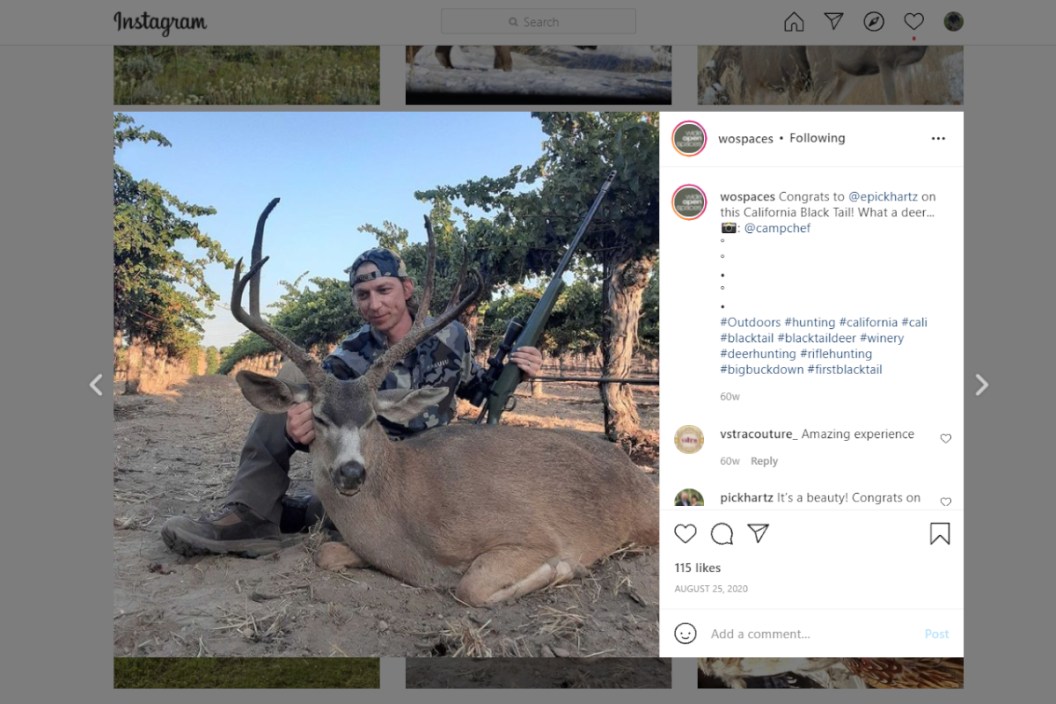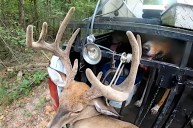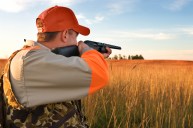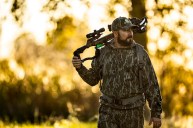Is posting your harvest to social media more trouble than it's worth?
Most people have a love-hate relationship with social media these days and we cannot blame them. While it is incredibly handy to get news and stay in touch with friends and family, these sites can also lead to plenty of anger and frustration. When we are talking about social media, we are referring mostly to Facebook, Twitter, Instagram, or YouTube. Probably more the first one than the others on that list.
Because Facebook has been under the biggest microscope the last few years. To the point they are contemplating a completely new name. Are they somehow hoping we still won't have a negative association with the site if they change it?
Whatever, that is not what we want to talk about today. Instead, we want to talk about something a little more controversial. Posting your harvests this season to social media. Should you? Before you answer that, consider some of the following thoughts on the subject.
The potential for online bullying.
2020 man... I passed this deer earlier this week before mistaking him for a different buck last night. Pulled the shot, and didn't recover him until this morning. The kicker is coyotes got him first. Really rough hunt. All I can do is learn from it and be better in the future. pic.twitter.com/jv31zaS6fv
— Travis Smola (@TsmolaOutdoors) November 22, 2020
We get why people like to post their pics to social media. We have done it ourselves many times. For most of us, our social circles are filled with other hunters who will usually respond positively to your posts about having finally harvested that big buck who has been a regular on your trail camera. In some areas, you might have friends and family begging for a few pounds of elk jerky after showing off that big bull. In truth, most people who post their kills online have nothing to worry about.
For others, posting their harvest can turn into a living nightmare. Anti-hunters have become extremely active on social media in recent year, and they love to dox hunters for their actions. These bullies seem to particularly like targeting high profile women in the outdoor world. Hannah Barron and Kendall Jones being among the targets of online smear campaigns. However, they do go after just about anyone. I noticed a smaller smear campaign going against Jim Shockey about a month ago after he posted a photo of his latest bull elk. For the most part, these acts of bullying were short-lived, and do not appear to have affected the online activities of these notable hunters.
However, in some cases, the bullying has gone to a horrific extreme. In 2017, blogger Melania Capitan became the target of just such a campaign. Shortly after it began, she committed suicide. The hateful comments kept rolling in even after she was dead. In this case, social media did more harm than good, and our heart breaks for this woman's family and what an awful situation this was. All brought on by the rise of social media.
We should mention it is not just anti-hunters who sometimes bully anyone who posts a photo of their kill online. It sometimes comes from other hunters too. I have seen disparaging comments from fellow hunters on another's choice of weapon (crossbow hunters get a ton of flak), the size of the animal taken, and even their choice of gear that may be visible in the picture.
The ugly, trolling side of the Internet has been enough for me to take pause before posting a photo many times. It is sad things are that way, but this is something that happens every single day in cyberspace.
The potential to be misrepresented.
This seems to happen most often with photos of especially large bucks. Sometimes someone will post a photo of a big deer online, not knowing they have just thrown a match on kerosene-soaked pile of timber. All it takes is one person posting it for a photo of a big deer to go viral. This used to happen via email. These days it happens through Facebook.
Sometimes a photo will be so popular, people will start to forget the details behind it. The next thing you know that Ohio buck is being tied to Kansas, Wisconsin, Michigan, and Kentucky and no one knows the name of the hunter who took it. This most famously happened with that "430+ pound buck" around 2009. We still see this photo circulating to this day with inaccurate details behind it.
Aside from getting your name and location wrong, there is also the change people will change other details of the harvest. For instance, there was the "calico buck" that circulated social media for years along with false claim Cabela's had paid $13,000 for the deer. Who knows where that detail of the story came from?
At worst, people might start attaching rumors to your harvest that you shot it behind a high fence or that you poached it. If the deer is big enough, a photo originally intended for just a few friends and family may bring a ton of otherwise unwanted attention.
Perceptions of non-hunters.
https://www.instagram.com/p/CQykFNRL0JS/
One thing that should at least be kept in mind with what we post on social media are how non-hunters may perceive your harvest photos. Just for clarification, I'm not talking about anti-hunters because let's face it, they hate us no matter what we do. I'm talking about people who do not hunt and may not have any sort of opinion on the matter. That is until they see something on social media to make them change their mind on the matter entirely.
It is not a bad idea to be mindful of how you are posing with the animal. I always clean all the blood off and tuck the deer's tongue back into its mouth before I take any photos. It just feels a bit more respectful to the animal. It is also less likely to get anyone upset.
This also helps you to avoid things like Facebook's "sensitive content" filter that blurs out images unless you click a button to see the photo. This stupid filter just seems to prime people to be upset about what is behind it. Because let's face it, when people see it, they are always going to click it. It's like putting a big "do not press" sign next to a big, red button.
I know some people are going to say: "Who cares what others think?" Well, I do, but not for the reasons you think. I'm not worried about offending people, but I am worried about them changing their opinions on hunting based on what they see on social media. Hunting is slowly dying, and we are not winning any new fans by posting careless, disrespectful photos of our harvests online.
There is also the danger a photo starts into motion public outrage that leads to regulation changes like the infamous "Cecil the Lion" incident several years ago. All it takes is one politician seeing something that upsets them to bring on unwanted, and unwarranted changes to our hunting laws.
The unfortunate truth is many people simply do not understand hunting. They do not know how much time and effort goes into a successful harvest. Nor do they understand how we utilize these animals. I cannot tell you how many times I have seen comments from obvious non-hunters implying that someone shot a deer only for the antlers and then discarded the rest. They do not seem to realize you can put a set of antlers on your wall and eat it for dinner too.
I have often seen hunters attack back when these sorts of comments are posted. However, I cannot help but feel this is just going to end with us alienating more people from our side. Instead of getting upset when someone criticizes us, perhaps we need to take more of an educational approach to our responses online instead?
The positives of posting on social media.
Now, before you think I'm totally hating on the idea of posting harvests online, I'm not. Because there are plenty of good reasons to post your animals online. Especially if you live far from friends and family. It really is the fastest and easiest way to share your success with people you care about.
There are other benefits though. I have seen more than one deer get posted on social media only for someone else to chime in with trail camera photos or sheds from the same deer. It's a good way to make friends and connections with other hunters who you may never have known or otherwise met in your area.
Posting a harvest on social media gives the chance to open a conversation on your feed about conservation and why it is important. You just may end up educating someone and converting them over to our side with a well-thought-out post. Especially ones that emphasize the sustainability of hunting, and how organic meals made from wild game are. It makes me wonder if perhaps more of our social media efforts should focus on the meals we glean from our harvests?
A great example of someone who is doing this well is Steven Rinella. His social media posts are all thoughtful, educational, and put an emphasis on hunting as a way of obtaining food. His feeds are extremely popular, and the fact his Meateater brand has changed the thinking of some vegans and vegetarians speaks to a solid social media approach. If we can all think of ways to do that when posting photos and videos of our own hunting adventures, the online hunting community will be a much better place.
We should at least be more mindful of what we post.
https://www.instagram.com/p/CEUXcOZCX-H/
My opinion is I do not believe we should entirely stop posting on social media. However, we as hunters should be aware of some of the problems that could arise from one of our posts and use good judgement when we are sharing our success in the field. It is just like any other form of posting on social media. Before you do post that harvest, at least think about who may see it, and how they may perceive hunting in general from your pictures. Is it a good representation for conservation and sportsmanship?
This goes not just for posting photos of your own harvests, but also how you interact with other hunters on these sites. Read again my section on bullying. We already get enough flak from anti-hunters on these sites, do we really need to be antagonizing each other over legal harvests too?
As much as we may hate to admit it, social media has a bigger influence on the real world than ever before, and we should act responsibly and accordingly. Sometimes it is best to hesitate on hitting "send," on uploading certain photos or making comments on someone else's harvest. Take a step back, and think long and hard about what you are about to post first. Let us be the best possible representatives for hunting going forward, not just in our actions in real life, but in how we interact with others online as well. Together, we can change the image of hunting for the better.
Products featured on Wide Open Spaces are independently selected by our editors. However, when you buy something through our links, we may earn a commission.
For more outdoor content from Travis Smola, be sure to follow him on Twitter and check out his Geocaching and Outdoors with Travis YouTube channels.
NEXT: THE AXIS DEER AND HOW THEY'RE IMPACTING PARTS OF THE UNITED STATES
WATCH





